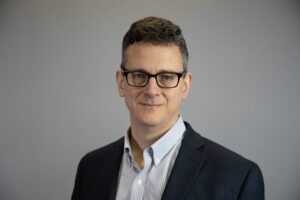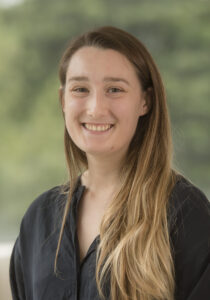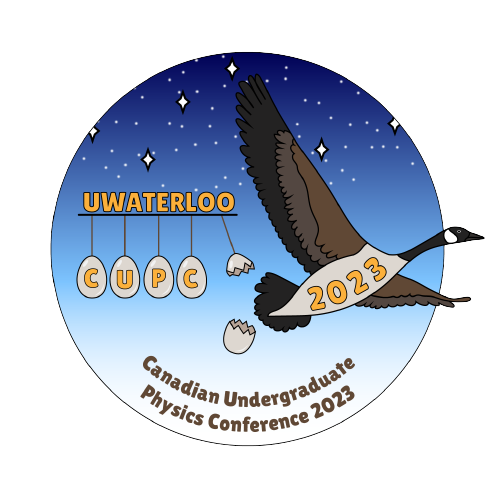This panel will take place on Sunday October 30th from 10:00 – 11:30. The student moderator for this panel is Wesley Schlenker – please email us if you have questions you are interested in having the panellists discuss!
Over the past two decades, human activities have contributed significantly to global climate change with numerous adverse effects on human societies. We are experiencing weather patterns that increasingly tend toward extremes, including prolonged droughts, more intense storms, and the acidification of our rising seas. Physicists will play a leading role as societies tackle perhaps the greatest collective challenge ever faced by humanity. Advancements in remote sensing and computational methods are improving the predictive models and their reliability over longer timescales. Meanwhile, research in new materials and novel energy sources is opening the door to a sustainable future. This multidisciplinary panel discussion, comprised of experts in atmospheric modelling, geospatial analysis, and polymer degradation, will discuss the present and future contributions of physicists to tackling climate change.
Dr. Paul Kushner
 Dr. Paul Kushner (he/him) is a Professor at the University of Toronto and the principal investigator of the Kushner Group. This research group is dedicated to the study of the atmosphere related to climate variability through prediction modelling (NOAA-GFDL and NCAR) and observational modelling (SPARC DynVAR and CCAR CanSISE). Paul is the past President of the Canadian Meteorological and Oceanographic Society and a founder and past chair of the working group on Atmosphere Related Research in Canadian Universities. His most recent research focus has been on atmospheric circulation and dynamics and on snow and sea ice processes.
Dr. Paul Kushner (he/him) is a Professor at the University of Toronto and the principal investigator of the Kushner Group. This research group is dedicated to the study of the atmosphere related to climate variability through prediction modelling (NOAA-GFDL and NCAR) and observational modelling (SPARC DynVAR and CCAR CanSISE). Paul is the past President of the Canadian Meteorological and Oceanographic Society and a founder and past chair of the working group on Atmosphere Related Research in Canadian Universities. His most recent research focus has been on atmospheric circulation and dynamics and on snow and sea ice processes.
Dr. Christopher Murray
 Dr. Christopher Murray (he/him) is an Associate Professor in the Department of Physics at Lakehead University. He began his research career studying polymer physics as an undergraduate and M.Sc. student at the University of Guelph. During his Ph.D. research, he studied the material science properties of chitosan, a biopolymer derived from insect shells. Dr. Murray made the transition to industry where he began to study wastewater and storm water treatment. Since joining the faculty at Lakehead University in 2010, he has continued to study degradable polymers and water treatment while forging relationships with local industry partners and community groups.
Dr. Christopher Murray (he/him) is an Associate Professor in the Department of Physics at Lakehead University. He began his research career studying polymer physics as an undergraduate and M.Sc. student at the University of Guelph. During his Ph.D. research, he studied the material science properties of chitosan, a biopolymer derived from insect shells. Dr. Murray made the transition to industry where he began to study wastewater and storm water treatment. Since joining the faculty at Lakehead University in 2010, he has continued to study degradable polymers and water treatment while forging relationships with local industry partners and community groups.
Chloe Papalazarou
 Since 2021, University of Guelph alumna Chloe Papalazarou (she/her) has worked as a Geospatial Analyst for Sparkgeo Consulting Inc., where she participated in experiments and projects that investigated the effects of burned areas in British Columbia on the 2021 flooding events, and used remote sensing techniques to investigate economic indicators for supply chain monitoring. During her time at Simon Fraser University pursuing her M.Sc. in Geography, she investigated the dependence of the effectiveness of atmospheric carbon dioxide removal on the amount and rate of removal, and how continental regions react to different amounts and rates of carbon removal.
Since 2021, University of Guelph alumna Chloe Papalazarou (she/her) has worked as a Geospatial Analyst for Sparkgeo Consulting Inc., where she participated in experiments and projects that investigated the effects of burned areas in British Columbia on the 2021 flooding events, and used remote sensing techniques to investigate economic indicators for supply chain monitoring. During her time at Simon Fraser University pursuing her M.Sc. in Geography, she investigated the dependence of the effectiveness of atmospheric carbon dioxide removal on the amount and rate of removal, and how continental regions react to different amounts and rates of carbon removal.
